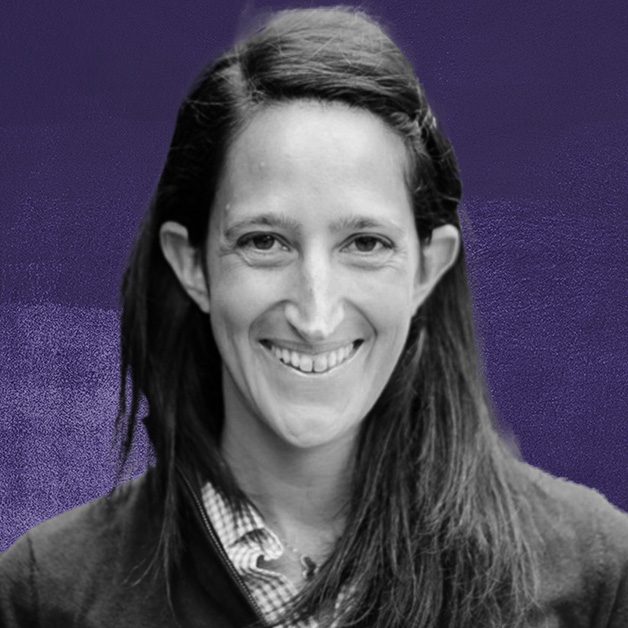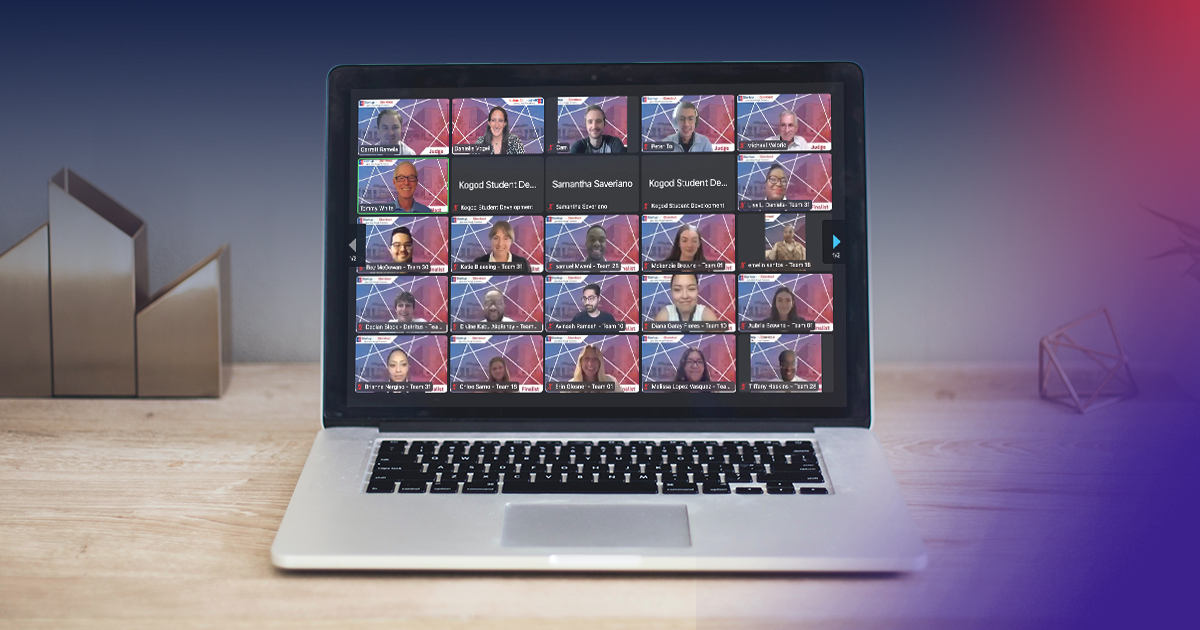
Kogod School of Business
Summer is often a time for jobs and internships, with some much-needed rest and relaxation mixed in. For more than 150 AU students, summer is also a time to gain invaluable exposure to the ins and outs of being a successful entrepreneur.
At the Kogod School of Business and throughout the AU community, July was a month-long celebration of entrepreneurship with the Fourth Annual Startup and Standout event which kicked off with a series of panels, workshops, and networking opportunities that brought together students, faculty, alums, and accomplished entrepreneurs to trade advice and stories from the front lines of building a successful venture.
Then, students had the chance to immediately apply what they learned in a pitch competition that ultimately saw three teams recognized (and awarded $20,000 in prize money split between the top three teams) for their ideas to drive change through original and innovative organizations.
“I hope the students come away with an excitement in their ability to solve difficult problems: to take risks and to work together to create innovative solutions to our world’s most pressing needs,” said Kogod department of management professor and assistant director of the Veloric Center for Entrepreneurship (formerly AUCI), Danielle Vogel, who helped spearhead the month’s programming.
Sponsored by the Kogod School of Business, the Veloric Center, the Center for Professionalism and Communications, and the AU Entrepreneurship Club, the entirely virtual series allowed students to participate remotely from wherever their summer travels took them.
Startup and Standout
This fourth annual entrepreneurship and innovation event kicked off with several panels featuring changemakers from the AU entrepreneurial ecosystem who returned to share lessons with current students and the next generation of changemakers.
Geoffrey Schuchardt, the AU Entrepreneurship Club president, spoke of the importance of being a self-starter—lessons he learned while founding Budget Mentor, a platform that helps researchers draft National Science Foundation budgets. Being “radically open-minded” is critical, he shared.
“In academics, typically, somebody’s telling you what you should be doing, and then you do it,” Schuchardt said. “But when you start a business, you must identify what you need to do all on your own and believe in yourself.”
Taylor Mason, Kogod ‘18, CEO and founder of Edify Consulting, preached the importance of crafting your own “attention-grabber” to stand out…—not to mention having a proposal for your services always at the ready.
“Clients are going to want to know what you provide, what your prices are, and they’re going to want to know what work you’ve done in the past,” Mason said.
Another panel underscored compelling storytelling as the key to finding entrepreneurial success.
Storytelling is a chance to re-frame something in a way people don’t already see."

Max Rubin
Cofounder and Executive Director, Energy Democracy Coalition
“You can have a solution and a product, but you need to make sure that your customers and the people you’re trying to get to invest in your company understand why you’re doing something,” added Xavier Henderson, cofounder of Hydronomy with Korey Salter, Kogod ‘22.
Additional speakers on the topic included Canvas Wear founder, Andrew Bird, Kogod ‘24 and AK Aveksha founder, CEO, and chief of science, Adhithyan Krishnan, Kogod ‘17.
At a third panel focused on starting a successful non-profit, students heard from Ekua Hudson, CAS ‘24, founder and president of the Food for Thought Foundation; Andrew LaBerge, SPA’26, executive director at Gen Z Runs; and Isabell Sliwinski, Kogod ‘25, founder of the Culinary Arts Collective.
In many ways, these sessions set the stage for students to immediately take what they’d learned and apply it to ideas for their own entrepreneurial ventures.
Meaningful Change Pitch Competition
If the first half of July allowed students to meet, learn from, and connect with successful entrepreneurs, the second half of the month was distinctly hands-on.
This summer’s Meaningful Change Pitch Competition drew 125 students from a cross-section of the American University campus. Split into groups of two to four, each team pitched their original ideas for new ventures to drive societal change. Ideas ranged from transportation to education, healthcare, sustainable waste management, and beyond.
I think we have a real current of entrepreneurial thinking here at AU that runs across all the schools."

Danielle Vogel
Assistant Director, Veloric Center for Entrepreneurship
As part of the contest, students first submitted two-minute video pitches. Then, the Center for Professionalism and Communications helped contestants sharpen their ideas into more impactful proposals. Ultimately, seven finalists shared their plans with a panel of highly accomplished entrepreneurs.
On July 28, the competition announced the top three top-finishing pitch teams, who will split $20,000 in prize money:
- Detritus, pitched by Mia Champagne, Declan Block, and Clayton Rigoli.
“Appalled” by the fact that less than 5 percent of plastics in the US are recycled, Detritus calls for using mushrooms to decompose plastics before selling the resulting compost to farms.
- Sustainable Steps, pitched by Mckenzie Browne, Erin Glosner, and Aubrie Browne.
Inspired by the 84 percent of Gen Z that worries about climate change and the 50 percent that feels helpless to make a difference, Sustainable Steps would offer an app to help everyday citizens combat their carbon footprint by making more daily sustainable decisions.
- The Climb Foundation, pitched by Brianna Nargiso, Lisa Daniels, and Katherine Blaesing.
The Climb Foundation would seek to disrupt barriers in schools to contend with inequity, and identify and disrupt the academic challenges posed by children who live in poverty. The group hopes to evaluate instruction and support services offered by schools and make recommendations on bridging gaps while creating community partnerships to drive results.
Vogel said that the innovative nature of the pitches and the overwhelming demand for the program—in the middle of the summer—are a testament to the entrepreneurial culture on the AU campus.
“I think it just really speaks to the fact that entrepreneurship is in AU’s DNA,” Vogel said.
She hopes that students emerge from this summer’s experience ready to deepen what they learned in Kogod’s course offerings centered around entrepreneurship, which include a specialization in the department of management, a minor, and elective offerings.
Moreover, though, Vogel feels this experience will help students be more prepared for the real world, whatever their ultimate endeavor.
“This idea of getting together and building poise and confidence in an innovative idea is an entrepreneurial theme that will help prepare our students to succeed no matter where they end up,” she said.
